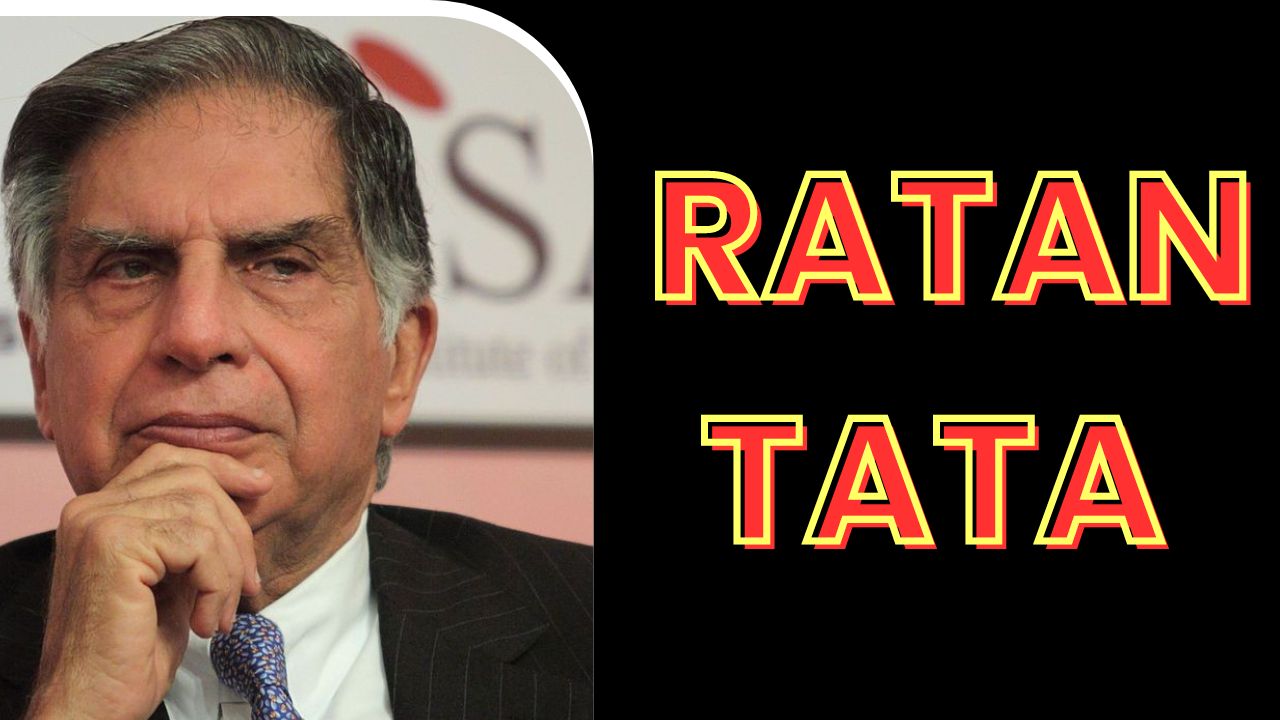Ratan Tata: A Visionary Leader Who Transformed Indian Business
In the pulsating realm of Indian business, one name towers above the rest – Ratan Tata. A luminary, a trailblazer, and a visionary leader, Tata’s indelible impact on the business landscape is a testament to his unparalleled acumen and unwavering commitment. This blog delves into the life, achievements, and enduring legacy of the man who transformed Indian business.

Early Life and Education:
Ratan Tata’s journey began on December 28, 1937, in Bombay (now Mumbai). Born into the illustrious Tata family, young Ratan’s early years were shaped by a unique blend of privilege and responsibility. His formative years at Cornell University and subsequent studies at the Harvard Business School laid the foundation for a mind that would one day revolutionize the Indian business landscape.
Ascending the Corporate Ladder:
Ratan Tata’s professional ascent mirrors a narrative of grit and determination. Joining the Tata Group in 1961, he navigated various roles, learning the nuances of the business from the ground up. His transformative leadership was evident when he took over as the Chairman of Tata Sons in 1991, steering the conglomerate through challenging economic landscapes and positioning it as a global force to be reckoned with.
Visionary Leadership:
At the heart of Ratan Tata’s leadership philosophy is a visionary outlook that transcends immediate gains. Focused on sustainable growth and societal impact, Tata championed innovative business models. His leadership during turbulent times, such as the liberalization era in the early ’90s, showcased his ability to adapt and lead with foresight, ensuring the Tata Group’s continued relevance.
Global Expansion and Acquisitions:
Under Ratan Tata’s stewardship, the Tata Group underwent a remarkable global expansion. Notable acquisitions, including the purchase of Jaguar Land Rover in 2008, not only catapulted the group onto the international stage but also underscored Tata’s strategic prowess. These bold moves solidified the conglomerate’s presence in diverse sectors and markets, illustrating Tata’s commitment to driving growth beyond borders.
Legacy and Impact:
Ratan Tata’s legacy extends far beyond balance sheets and boardrooms. His commitment to ethical business practices, corporate social responsibility, and nation-building initiatives has left an indelible mark. The Tata Nano, the world’s most affordable car, and initiatives like Tata Swach are testaments to his belief in leveraging business for societal betterment.
Conclusion:
As we reflect on the life and contributions of Ratan Tata, it becomes evident that his impact on Indian business is not merely financial but a holistic transformation. A visionary leader who navigated challenges with resilience, Tata’s legacy serves as an inspiration for aspiring leaders and a reminder that true success lies in the amalgamation of business acumen, ethical values, and a commitment to positive societal change. Ratan Tata is, indeed, a beacon of leadership, illuminating the path for the future of Indian business.
Frequently asked questions
Q: Who is Ratan Tata?
A: Ratan Tata is an Indian industrialist and the former chairman of Tata Sons, the holding company of the Tata Group. He served as the chairman from 1991 to 2012.
Q: What is the Tata Group?
A: The Tata Group is a multinational conglomerate headquartered in Mumbai, India. It operates in various sectors, including steel, automobiles, information technology, telecommunications, chemicals, and more.
Q: When was Ratan Tata born?
A: Ratan Tata was born on December 28, 1937, in Bombay, British India (now Mumbai, India).
Q: What is Ratan Tata’s educational background?
A: Ratan Tata graduated with a degree in architecture from Cornell University in 1962. He later completed the Advanced Management Program at Harvard Business School.
Q: How did Ratan Tata become the chairman of the Tata Group?
A: Ratan Tata was appointed as the chairman of the Tata Group in 1991, succeeding J.R.D. Tata. His appointment came during a challenging period for the group, and he played a significant role in transforming and expanding the business.
Q: What are some notable achievements during Ratan Tata’s tenure?
A: Under Ratan Tata’s leadership, the Tata Group acquired several international companies, including Tetley (tea company) and Jaguar Land Rover (automobiles). He also led initiatives in corporate social responsibility, such as the development of the Tata Nano, known as the world’s cheapest car.
Q: When did Ratan Tata retire?
A: Ratan Tata retired as the chairman of the Tata Group in December 2012. He was succeeded by Cyrus Mistry.
Q: Is Ratan Tata involved in philanthropy?
A: Yes, Ratan Tata is involved in various philanthropic activities. The Tata Trusts, chaired by him, are among the oldest and most significant charitable foundations in India.
Q: What awards and honors has Ratan Tata received?
A: Ratan Tata has received numerous awards and honors, including the Padma Bhushan and Padma Vibhushan, two of the highest civilian honors in India. He has also received international recognition for his contributions to business and society.
Q: Is Ratan Tata still involved in business after retirement?
A: While Ratan Tata officially retired from the Tata Group, he has remained active in the business and startup community. He has invested in and mentored various startups through RNT Associates, his private investment firm.
